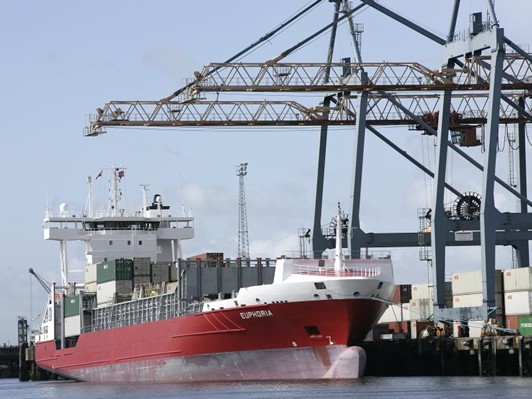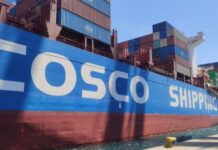
The full force of the changes forced on supply chains by Brexit has yet to be fully realised as the Covid-19 pandemic has stymied trade and has seen traders stockpiling goods, according to the freight forwarders’ representative CLECAT.
Speaking at the Internal Market and Consumer Protection (IMCO) Committee of the European Parliament, Dimitri Sérafimoff, Chair of the Customs and Indirect Taxation Institute of CLECAT, discussed the challenges to industry posed by the implementation of the EU-UK Trade and Co-operation Agreement (TCA).
At today’s hearing Sérafimoff told committee members “‘The TCA did not remove the need for businesses to make extensive preparations and adjust their operations. Today, almost five months into the ‘new normal’, we see that many traders are still not fully prepared.”
Additionally, the UK border controls were also unprepared and, as Sérafimoff pointed out to the committee, the UK has not yet fully rolled out its border controls for EU imports, which means “EU goods entering Great Britain with minimum controls,” and that will eventually lead to more challenges including pre-notification requirements on EU imports of certain goods subject to phytosanitary (SPS) controls in Great Britain, and full customs declarations at the time of import for all goods, in the near future.
SPS checks are critical for the Irish border with Northern Ireland, with the country’s major exports including animal products, foods and similar products.
“It is absolutely vital that the implementation of the TCA is supported by proper and pragmatic application of the Protocol on Ireland and Northern Ireland of the Withdrawal Agreement”, said Sérafimoff.
The industry has already experienced the barriers to trade brought about by Brexit and the new border controls, including additional administrative work, customs controls, at least into Europe at the moment, veterinary and SPS checks on food and agricultural products all adding to the delays and therefore the costs of transportation.
“The implementation of these new formalities and procedures brought about numerous practical challenges for supply chains which will certainly take time to overcome. But seamless trade across the Channel is a thing of the past,” explained Sérafimoff.
What is more is that CLECAT has identified three areas where the authorities in both the EU and the UK must come to an agreement with further discussions and guidance urgently needed.
Chief amongst the three areas for further discussion highlighted by CLECAT is the need for common SPS standards which will support agri-food supply chains. In addition, CLECAT has called for greater co-operation on customs security to facilitate legitimate trade, while a “more pragmatic approach” to the rules of origin and associated procedures is also required, Sérafimoff told the EU committee.





